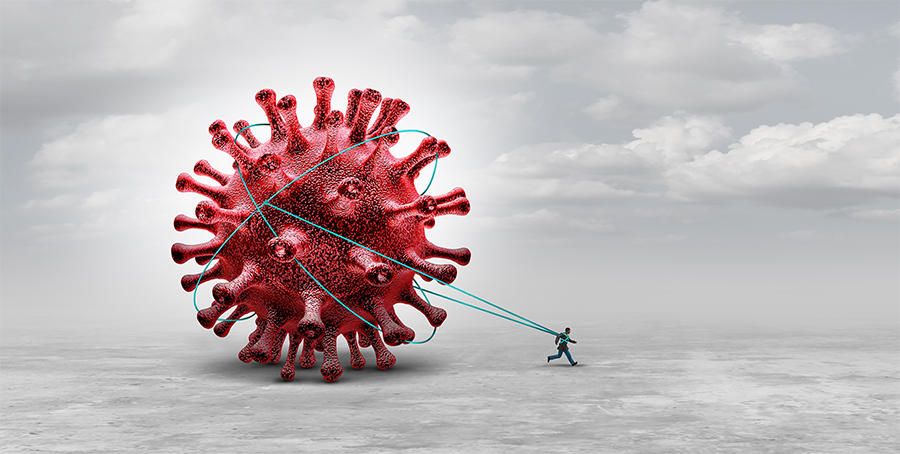N3C Study Finds Long COVID More Likely After Initial Infection Than After Reinfection
July 31, 2024
Millions of electronic health records from the National COVID Cohort Collaborative (N3C) database have helped researchers shed new light on connections between COVID-19 infection, reinfection and the development of long COVID. A new study of N3C patient data showed that people with more severe first COVID-19 infections could be at greater risk of a worse reinfection. The N3C data also showed that long COVID may be more likely after the first infection than after a reinfection.
NCATS developed N3C as a nationwide partnership of organizations sharing clinical data to improve knowledge of COVID-19 and find possible treatment strategies. With support from the NIH Researching COVID to Enhance Recovery (RECOVER) Initiative, researchers at RTI International and their colleagues studied records from more than 3.1 million patients in the N3C Data Enclave.
The research team found that 6.9% of people in the study group had a COVID-19 reinfection at least 60 days after their first infection. People with reinfections were often younger than those who were not reinfected. They also were less likely than people without reinfections to have been vaccinated.
The severity of a person’s reinfection appeared to be linked to the severity of their initial infection. Age and other health conditions may also have played a role.
Most people (87.5%) had mild first infections without needing to go to the emergency department (ED) or be hospitalized. Among this group, only 12.6% needed an ED visit or hospitalization during a reinfection. However, one-third (33.1%) of those who visited an ED during their first infection returned during a reinfection. Additionally, more than a quarter (27.2%) of people who were hospitalized during their first infection were hospitalized again during a reinfection.
The N3C data showed that people with more severe COVID-19 infections and reinfections were older and had greater comorbidity scores than those with mild first infections and reinfections.
The risk of developing long COVID appeared to be greater after a first infection than after a reinfection. This risk was not affected by what COVID-19 variant was dominant at the time of an infection.
The researchers also looked at biomarkers in people who had reinfections. They found that albumin levels in that group were consistently lower than normal after an initial infection and just before reinfection. Previous research has shown that albumin might be a biomarker linked with long COVID symptoms.
Learn more about the study findings in Communications Medicine.



